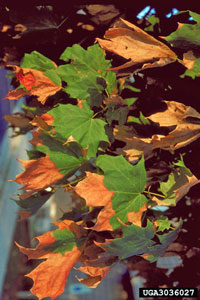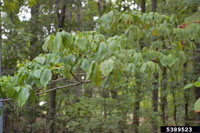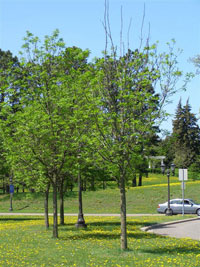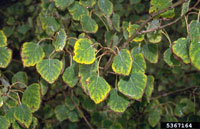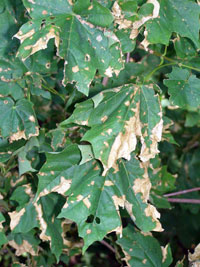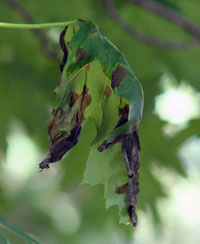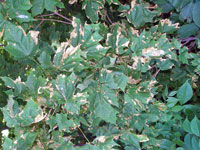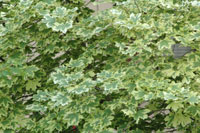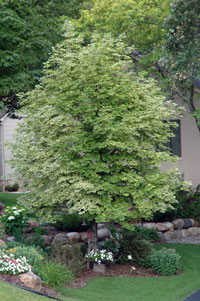Extension > Garden > Diagnose a problem > What's wrong with my plant? > Deciduous Trees > Maple > Leaf edges discolored, center remains green
Maple > Leaves > Leaf edges discolored, center remains green
1 of 4
Environmental stress
Drought, compact soils, flood damage, winter injury, other
- Leaves wilt and turn brown at the tips and the margins first, then completely brown
- Leaves appear drooped or wilted within canopy
- Dead branches in the canopy
- Many weak young shoots/sprouts at the base of the tree
- More information on caring for trees and shrubs
2 of 4
Deicing salt injury
- Soil salt damage causes leaf edges or margins to appear burnt or scorched progressing toward the mid-vein
- Soil salt damage can mimic nutrient deficiencies, e.g., yellowing foliage on deciduous plants
- Salt spray causes branches to become tuft-like (a.k.a. witches’ broom)
- Run-off salt kills roots which results in die-back of most branches
- Affected trees leaf out later than other non-infected trees
- All deicing damage most noticeable in spring
- More information on Deicing salts
3 of 4
Anthracnose
Discula campestris, D. umbrinella, Aureobasidium
apocryptum, Colletotrichum gloeosporioides
- Young leaves turn brown to black, shriveled or curled
- Mature leaves have irregularly shaped tan, brown or black leaf spots found along leaf veins; may be curled if severely infected
- Lower, interior branches are most affected
- Damage occurs in wet weather in early spring as leaves are expanding
- More information on Anthracnose
4 of 4
Leaf variegation
- Entire leaf margins are white, cream or pinkish
- Branches with variegated leaves can revert back to green leaves and result in a mix of variegated and green branches within the canopy
- Rare and only seen on varieties specifically selected for variegation
- Norway maple, red maple and boxelder trees are available with variegated leaves



